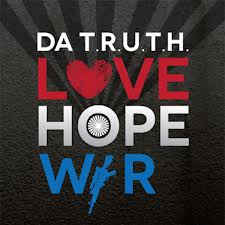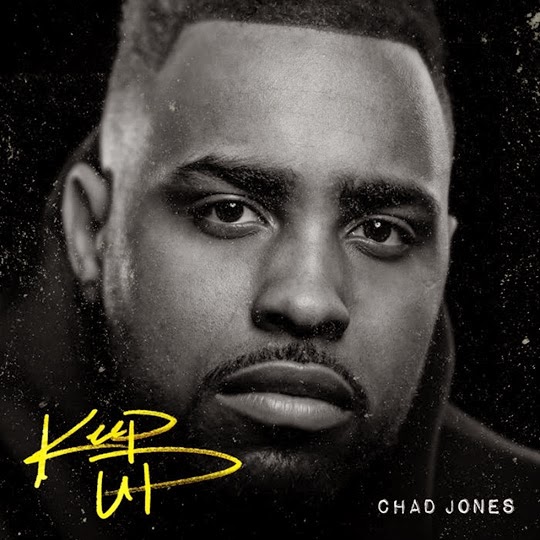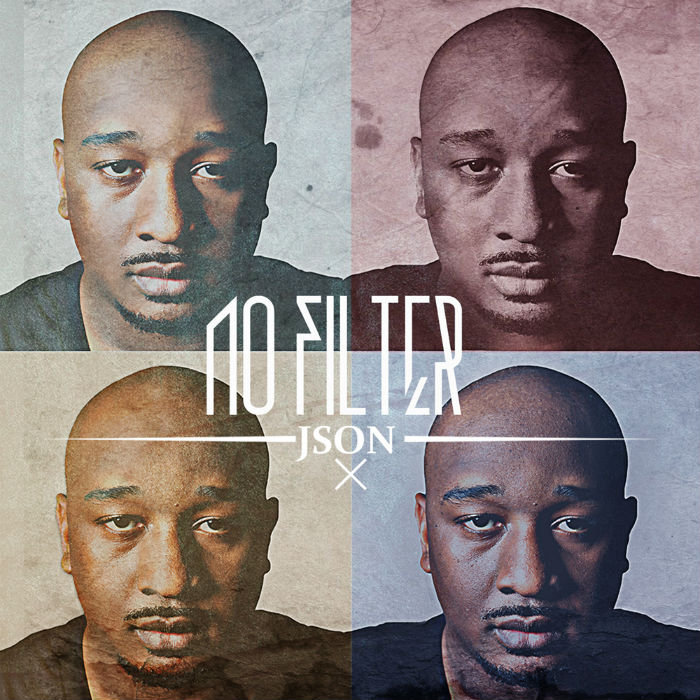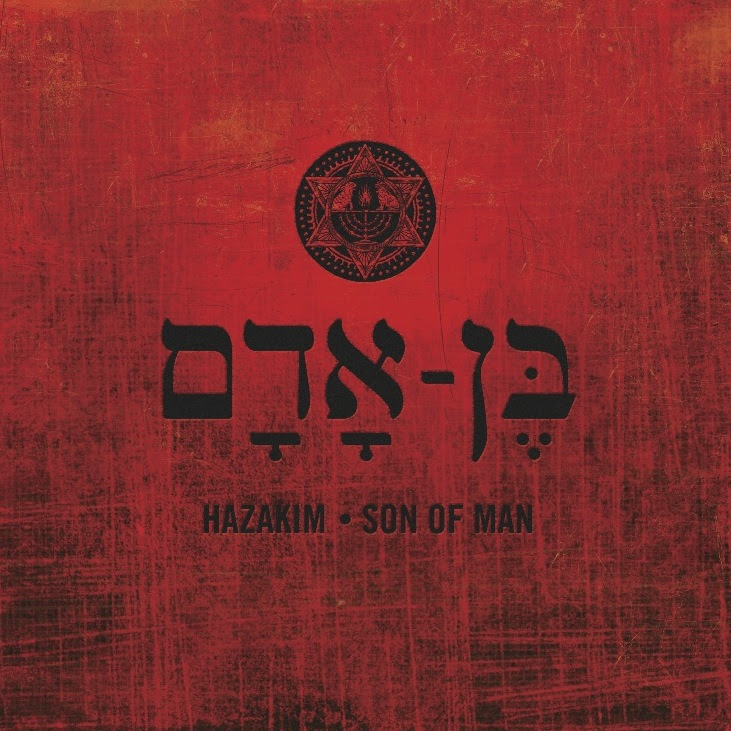
Before the concept of Lecrae’s “Church Clothes” was birthed, I was declaring to my five followers on Twitter that Da T.R.U.T.H.’s comeback album “The Whole Truth” was going to be the most important Christian hip-hop album ever put on wax. That importance gained more weight from what it meant as a testimony more than what was going to come through the speakers, but after the convention-challenging “The Whole Truth,” hopes were high. The public fall from grace coupled with that same grace providing the footholds to climb out of the pit, I thought, was going to produce a musical autobiography that reached ecclesiastical heights. While that album ultimately didn’t come close to masterpiece status that I may have imagined, it was no flop…it had its moments; the most notable of which were the ones that were tied to Truth’s fall and restoration like ‘Lights’, ‘Cherished,’ ‘Alive’ and ‘The Whole Truth’ (Despite it’s questionable resemblance to Skylar Grey’s “I’m Coming Home” hook). Enter “Love, Hope, War” 1.5 years later.
Having answered most of the questions and spreading the grace he had been doused in last time around, the hope for “Love, Hope, War” is a return to form for the Philadelphia emcee i.e. convicting, articulate rhymes walking over a varied sound bed. Album opener “D.O.S. (Death of Silence)” is a rousing call to arms for the oft-silent American Church and, while I don’t agree with the entire message of the song, it’s dutiful as the album opener and the parental tone taken speaks volumes. The synth-heavy beat will get feet walking, but I wish that the bass hit harder to give a cadence for the rebels to march to. Lead single “Hunger Games,” produced by the reliable J.R., is another hammering sonic number in the commercial vein that brings back the challenging tone of Manny’s pre-scandal years, with a noticeable touch of grace. Truth is always good for one guitar riff-heavy cut per album (‘Click’, ‘Without God’) and “Where Was I” picks up the job description here. I’m cool off the song and getting a little bored with the vanilla pairings of rock and rap that I’ve heard from rappers for Jesus in the past year. “The City,” with a hook from the spring water vocals of B. Reith, follows next in line. I have to be honest, and I may be in the minority, but the song grates me in a way that every listen was painful. That’s a little surprising, considering the marriage of the zippy piano line and Reith’s vocals would usually be a personal winner, but the rough vocal effects and overall awkwardness the outfit is on the emcee makes it a quick skip.
I mentioned in my review of Xist Music’s “Move” compilation that it sounded like Manny borrowed Lil Wayne’s autotuner on a couple of tracks. On second single “J.I.F.E” he shows that he probably just stole it, with no word on whether he’ll be returning it. Despite that, this is one of my favorite cuts on the album. Maybe that’s because of the switch up in tempo of J.R.’s synth-soaked beat or maybe it’s because we hear from Emanuel Lambert as a person more than an emcee. With the wisdom of a genre old-head, he brings proper balance back to the ministry of Christian hip-hop whose pendulum has swung more to the evangelism of the streets more than the edification of the saints. Certainly the two aren’t exclusive, as Truth articulates, while answering critics of his approach and heart (“They say I’m preaching to the choir, people dying in the streets / You’d be preaching to ’em too if you’d seen them lately”). The brief reference to the Tech N9ne situation and an upcoming track makes me excited for the day when artists of our subgenre consistently stop acting like their in a bubble and address, in and out of the booth, the goings on in our culture outside of generalities and the unintentional facetiousness that come with well-intentioned but tired calls for holy living that dominate fifteen-song tracklists.
Aside from the imitation of Drake, I have no problems with “Real Love:” a slightly generic take on the pitfalls of those who think love is just valentines, daps and co-signs. Likewise, while I’m no a fan of it, on it’s own, I’m not mad at “Ugly Love,” who trades the wispy female hook of the previous track with a timid Chris Brown-esque chorus. What I can’t figure out is why there are two songs, back-to-back, that have no distinguishable differences in message or theme. Plus, the constant use of synthesizer is starting to make tracks bleed together sonically and, with some exceptions, the most distinguishable elements of the second half of the album is what it’s preaching. An exception to this rule is the posse-cut “Hope.” Featuring Thi’sl on a repetitive hook that doesn’t take advantage of his trademark grunge, and verses by Flame and Trip Lee that don’t fare much better than either of their previous albums, it’s probably the song on the album that fans skipped to first. The trap beat is slim but good enough and Truth’s ad libs mixed with finger snaps has the chance to be infectious but its potential is never realized. “The G.O.A.T.” is an aggressive number that’s grown on me. It gets my head nodding in rhythmic ways despite a lack of originality. If Swoope’s “Wake Up” taught us anything, it’s that you can make original songs about truths that are infinitely glorious and familiar fresher than their multi-millennium age.
Speaking of the Ohio emcee, he steps in the booth for “Peace Talks,” a walk at street level at the war-ravaged streets where no official battles are named or in talks to be reconciled. The production, by Ron Riley, Mario Maitland and Sean Simmonds, is grittier, giving it a little more life than most. “Table Talk,” no doubt what will be the most talked about four minutes on the album, is great in Truth’s defense of the “Christian Rapper” title in a time that has seen it take much abuse. I love the track, not because of the slightly dated beat or because I’m in complete agreement with his message, but because it finds him exercising his well-earned position as a veteran of Christian hip-hop and using that influence to build into the upcoming generation of saved emcees. And for those of who saying this is a diss towards ‘Crae…just stop. The album ends on a sweet note with “What About.” A Christon Gray serenade showing off a mellow bed of sound for some of the album’s best bars lays the album to sleep contentedly.
Let’s get the negatives out of the way. “Love, Hope, War’s” biggest blemishes are doses of wish-washed production, generic numbers that betray the depth of the emcee and an undercooked concept (Something I wouldn’t even mention if theme wasn’t always central and well evolved in Da Truth’s other releases). I described the beats on Xist Music’s “Move” compilation as fresh enough but stuck in a box. Here, in the label’s latest release, the production, with noted exceptions, is Rebel-era circa 2008: Heavy on effects and bravado, light on distinction and originality. In his best work, Truth leaned more towards his east coast region’s sound more than what was on the radio. Not so here, though the evolution could be forgiven if it didn’t feel like the rapper was trying to squeeze into a medium-sized v-neck. Still, seeing Truth eagerly welcome his position as an old(er) head and hear his lyrical tone adjust accordingly is encouraging and something I look forward to seeing evolve in and outside of the booth. It gives plenty of hope that the best from the Philly emcee hasn’t necessarily been seen yet. “Love, Hope, War” has some shining moments but you have to sift through some gray matter and dust them off to get the most shine out of them.
Categorical Ratings Breakdown:
Originality/Creativity: 2.5/5
Lyrics: 3/5
Delivery: 3.5/5
Beat Selection/Production: 2/5
Concept/Arrangement: 2/5






